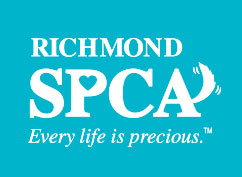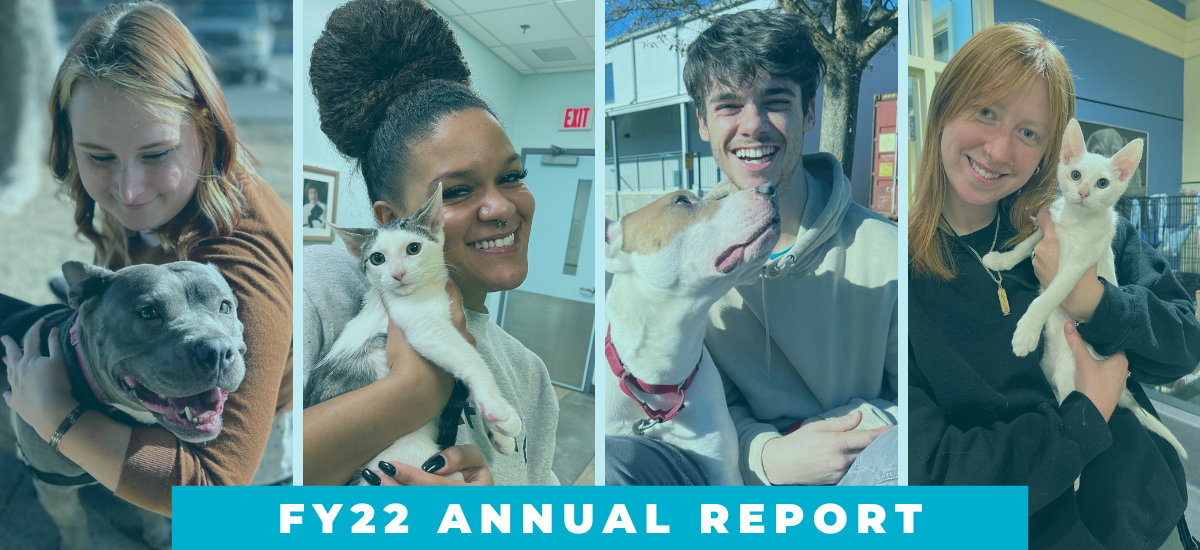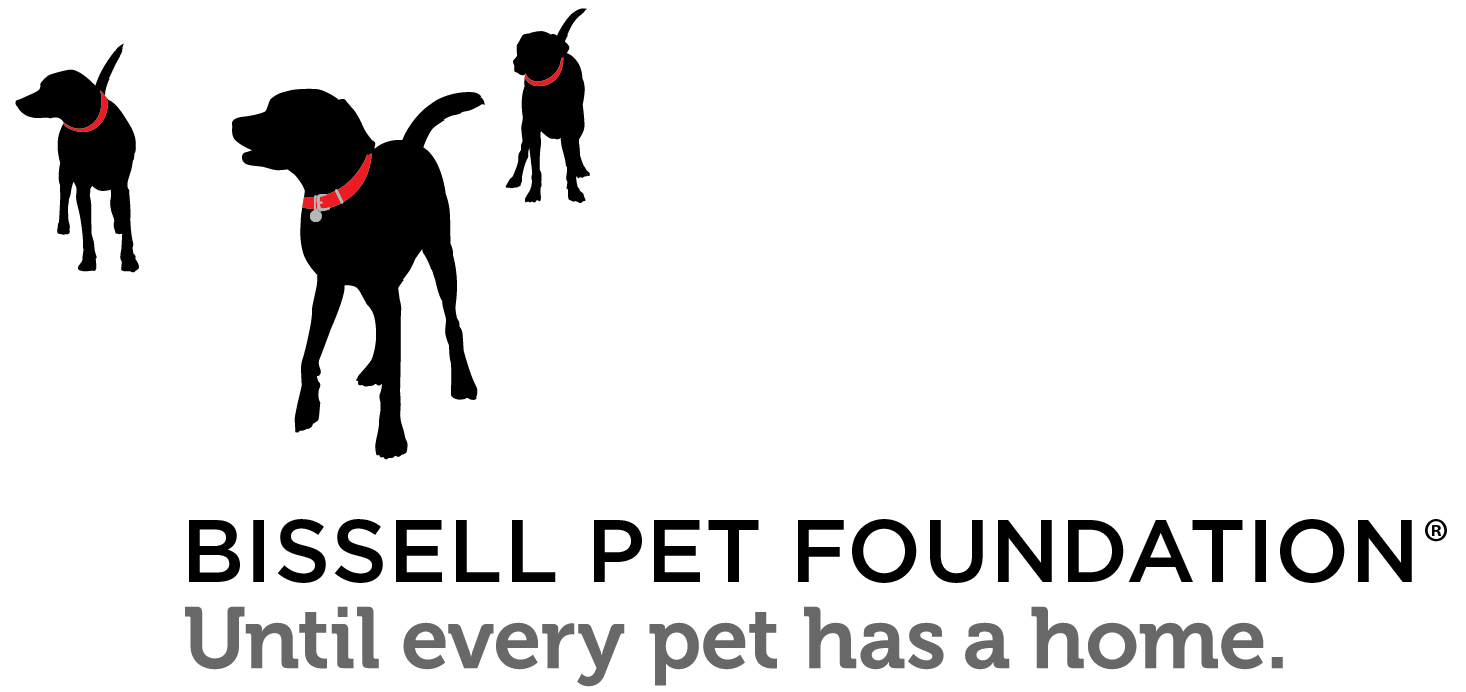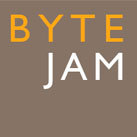The Richmond SPCA’s annual report for our most recent fiscal year, which ended September 30, 2022

If you are viewing our annual report on a mobile device, we recommend landscape mode.
Our most recently-completed fiscal year was a momentous one, and the Richmond SPCA could not have achieved all we did for animals and the people who love them without your generous financial contributions and dedicated volunteering. You made the lifesaving successes summarized in this year’s annual report possible, and through your support, you advanced our mission and delivered help to tens of thousands of animals and their devoted guardians.
We kicked off Fiscal Year 2021-2022 by adopting a new strategic plan that provides a critical roadmap for the next three years. The plan centers around investing in our staff; promoting diversity, equity and inclusion; increasing shelter diversion (keeping pets out of shelters and in loving homes); adapting to the changing population of dogs and cats in shelters; enhancing our physical infrastructure and technology; and managing our brand. As we emerge from the pandemic and return to more normal operations, this strategic plan is one that strengthens our foundation and positions us to make an even greater impact for the animals and people who need us in the years ahead.
Among the many reasons Fiscal Year 2021-2022 was significant was that it marked our twentieth year as a no-kill humane organization. To celebrate the milestone anniversary, we invited the community to our Hermitage Road campus for a daylong block party filled with fun activities. The occasion was a memorable one, and our enormous thanks go to our tribe of supporters whose love and commitment have sustained no-kill for two decades. We are the luckiest organization to have your bighearted support.
Another proud moment over the last year was the establishment of our satellite high-volume, free and low-cost Smoky’s Spay & Neuter Clinic. We opened the facility, which provides services to pets in the care of government shelters and private rescue groups as well as to free-roaming, unowned community cats, in March 2022 in Hanover County. In this new space, we are providing crucial access to much-needed services and assuring pets across the region are fixed prior to adoption.
And finally, we are delighted to report that we placed more pets in adoptive homes in this fiscal year than in any other year since opening our Robins-Starr Humane Center in 2002. In total, 4,034 pets were matched with guardians who will love them for their lifetimes.
Thank you for making the achievements outlined in this year’s annual report possible. Your kindness and compassion drive us to do more every day, and we look forward to saving more lives with you as our partners in the year ahead.
Cheers,

Tamsen Kingry

4,483 Homeless Pets Sheltered
Our 2022 fiscal year began on October 1, 2021 with 279 animals in our care. During the course of the year, we brought in an additional 4,204 homeless pets in need, caring for a total of 4,483 pets at our humane center by the fiscal year’s end on September 30, 2022. We concluded FY22 with 312 pets in our care awaiting adoption in the year ahead.
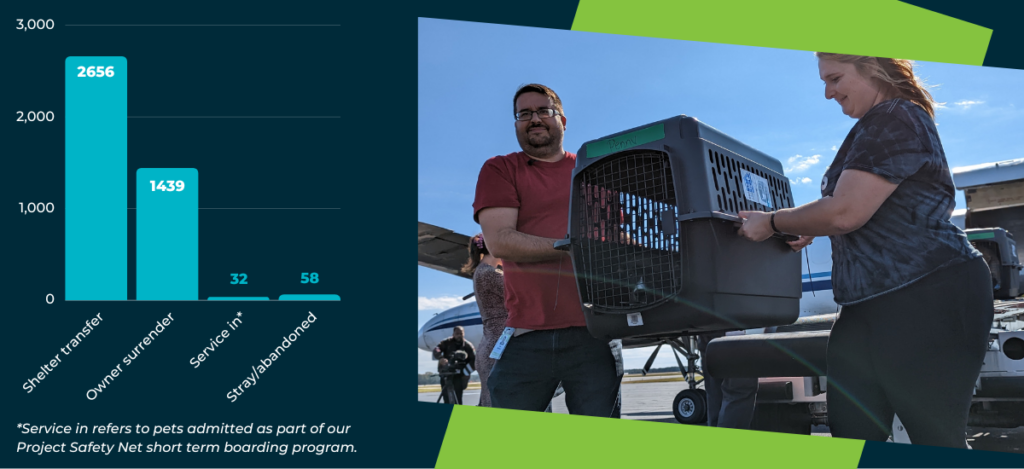
Shelter Transfers
The pets we transferred into our care this year came from 77 partner agencies. Our partners are primarily municipal shelters, operated by city and county governments with limited resources. Within the Commonwealth of Virginia we partnered with 65 sheltering organizations during the fiscal year, and we took into our care pets from an additional 12 shelters and rescues in other states as well as the territory of Puerto Rico.
See pets transferred from each partner agency by clicking a point on the map below.
Animal Care
Our animal care technicians were the temporary guardians of 4,483 pets sheltered at our humane center this fiscal year. These devoted staff ensure that cozy beds, toys and fresh water greet every pet when he or she is shown to a kennel. Throughout a pet’s stay, the animal care team provides walks, feeds meals, scoops litter boxes, keeps housing areas clean and comfortable, monitors eating and the overall condition of our pets. While we lack a measurement for the love they give, it is evident in all that they do.
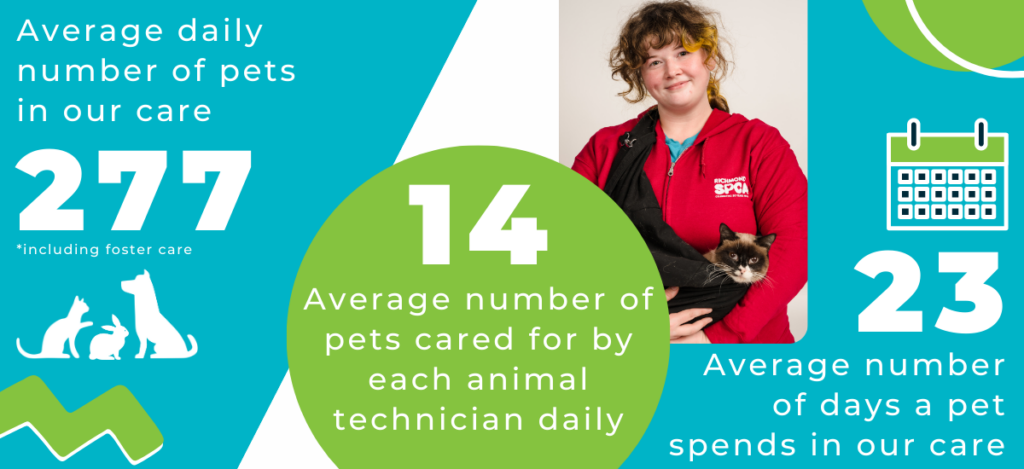
Internal Veterinary Services (IVS)
Every homeless pet arriving at our humane center receives a thorough examination by our veterinarians along with all age-appropriate vaccinations and other essential preventative care, microchipping and sterilization (for those who were not yet spayed or neutered when brought into our care).
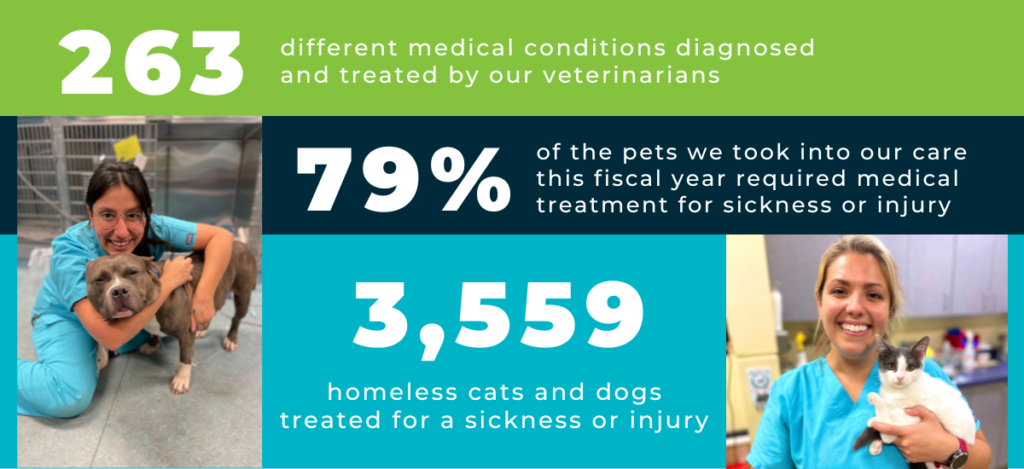
The majority of pets in our care are treated entirely in house, including surgeries performed at our Susan M. Markel Veterinary Hospital.
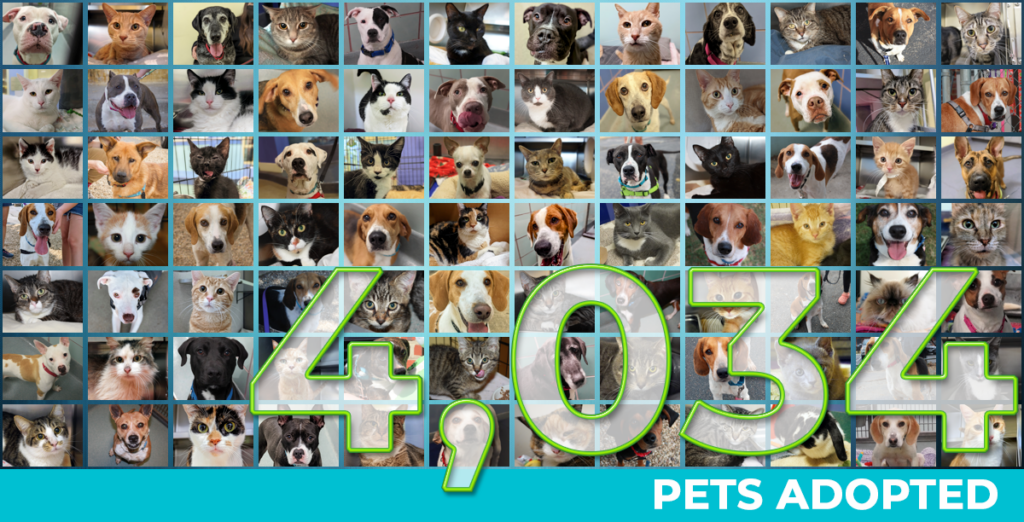
10,489 Patients of the Susan M. Markel Veterinary Hospital
Our Susan M. Markel Veterinary Hospital serves owned pets whose guardians qualify to become clients. Access to both routine care and treatment for critical illnesses ensures that these pets stay in their homes with families who love them and are not at risk of being surrendered to a shelter.
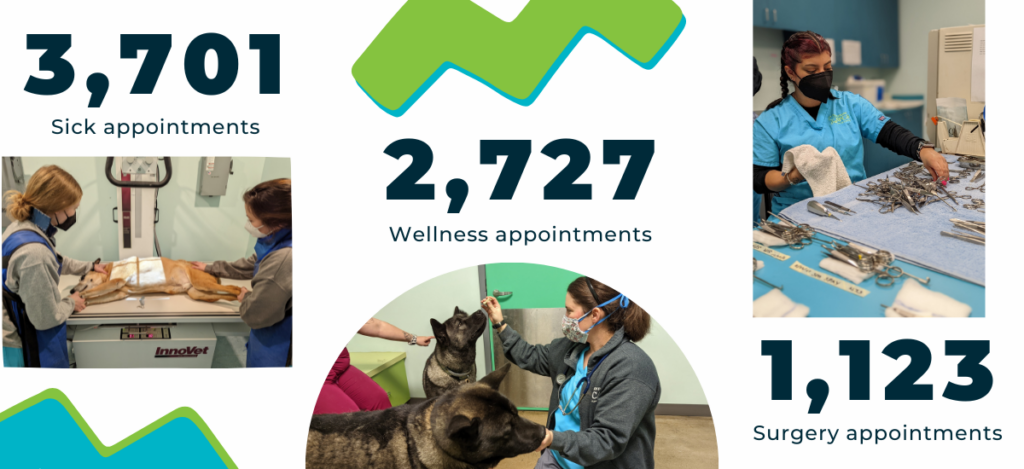
We deliver wide-ranging medical services through our full-service hospital. A sampling of the lifesaving treatment and diagnostics we performed this year is depicted here.
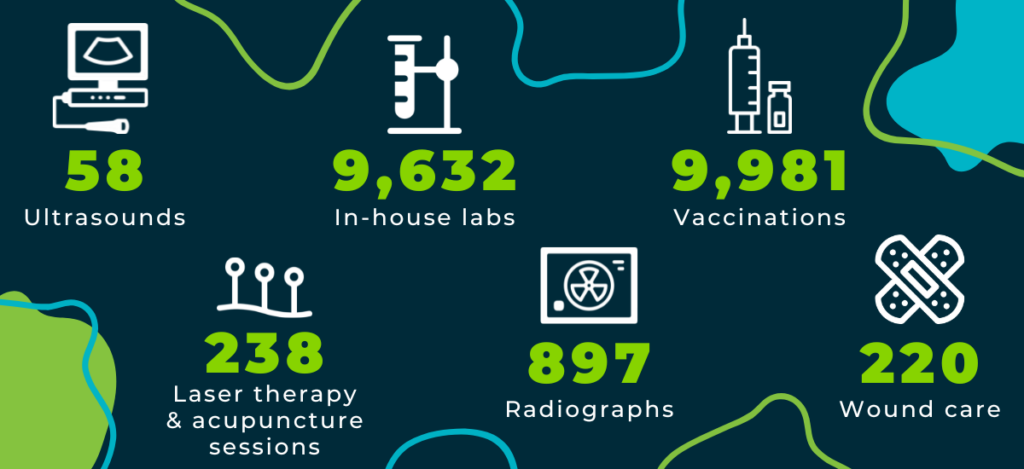
334 Pets Assisted through Rehome
Our free online Rehome tool prevents pets from becoming homeless by connecting them directly with adopters, avoiding the stress of being relinquished to a shelter. Rehoming with another responsible and loving guardian can be the best option when a pet is unable to stay in the current home.
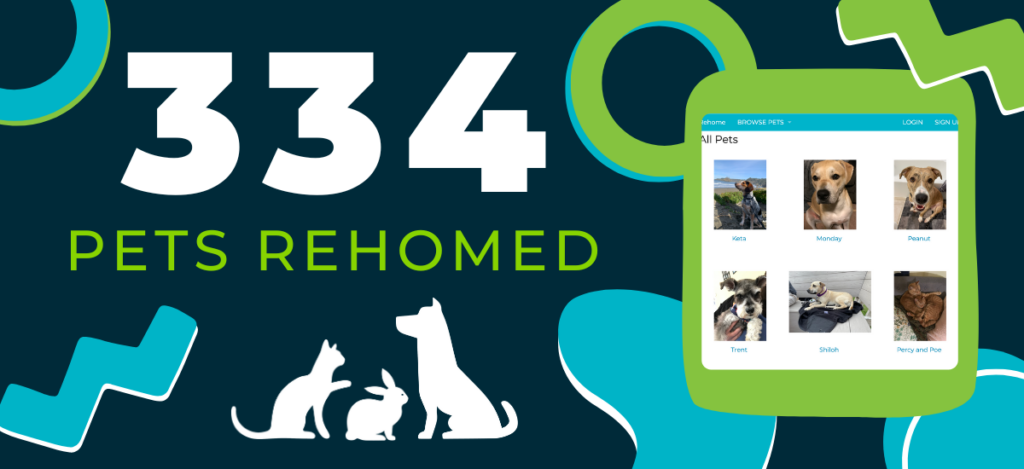
2,675 Sterilization Surgeries for Community Cats and Rescue Groups
Between October and February, we performed 661 surgeries for community cats brought to our Susan M. Markel Veterinary Hospital for Trap Neuter Vaccinate Return. We also sterilized 213 pets for public shelters and nonprofit rescues in the first five months of the fiscal year. To expand these services that had been provided at our full-service hospital since 2016, we acquired the former AL Shilling Spay & Neuter practice and reopened it in March as Smoky’s Spay & Neuter Clinic.
Our satellite clinic provided 1,801 surgeries in its first seven months of operation. Performing TNVR along with pre-adoption spay and neuter surgeries for sheltering and rescue agencies ensures that when these animals are returned to their outdoor colonies or placed in homes, they will not reproduce and add to the homeless animal population.
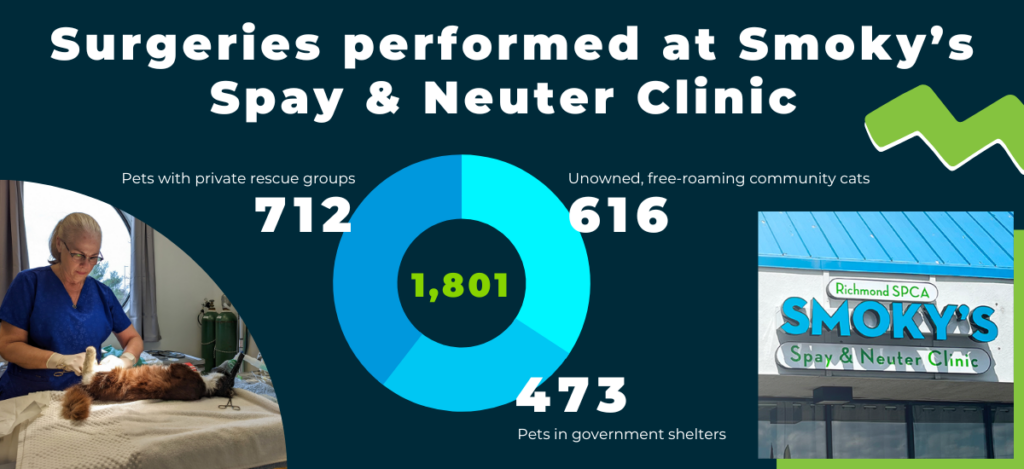
910 Dogs Enrolled in Reward-Based Training Classes
When dogs join their guardians for class at the Richmond SPCA, they learn together from instructors who make training fun and rewarding using the science of animal behavior and learning theory. Whether first enrolled as a puppy or beginning training as an adult, many of our students graduate from basic manners to return for tricks and canine sports.
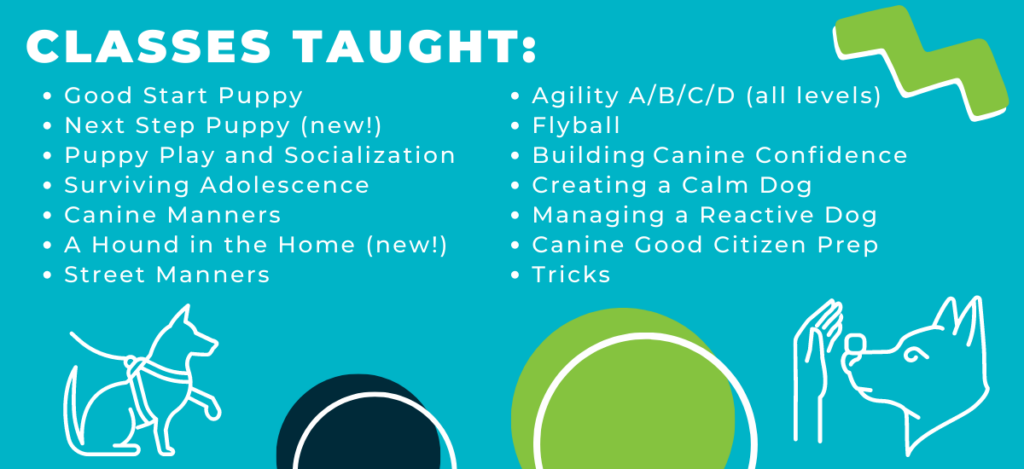
56 Dogs Attended School for Dogs
Five days a week, students are dropped off at the Richmond SPCA School for Dogs for individualized instruction with our trainers. Our students love coming to school and receive one-on-one positive-reinforcement training.
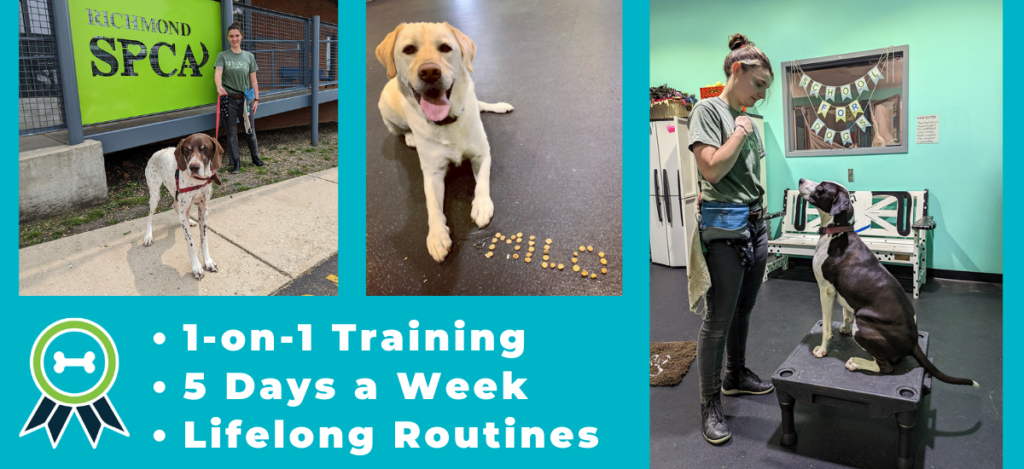

3,560 Adopters
Matching companion animals with lasting homes is not only lifesaving for animals, it changes the lives of people who open their hearts and homes. The joy that starts in our adoption center builds life-long bonds for thousands of pets and their adopters.
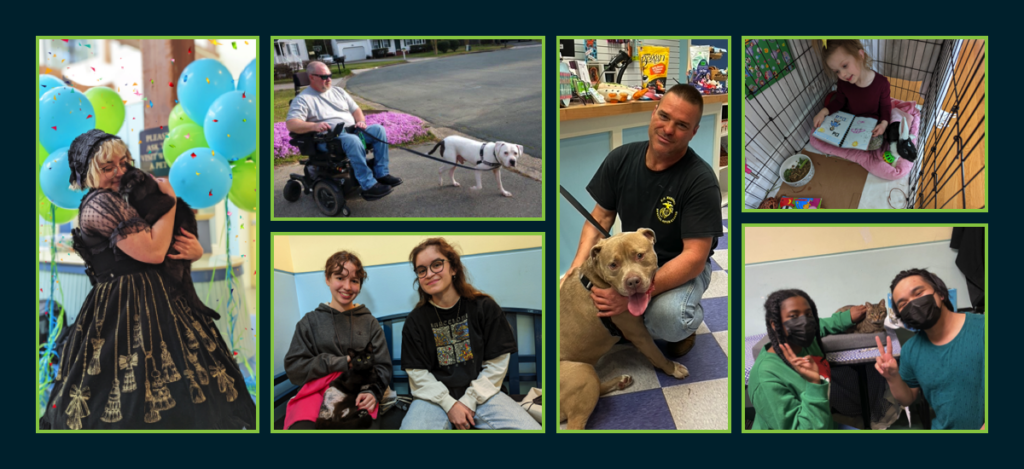
Though each match is meaningful, stories of adopters who welcome home long-term shelter residents or those with special medical needs are especially touching. We offer special adoption programs for senior adults and for members of the military and first responders. While the majority of our adopters are adding a cat or dog to their families, we also found homes for bunnies and guinea pigs this fiscal year.
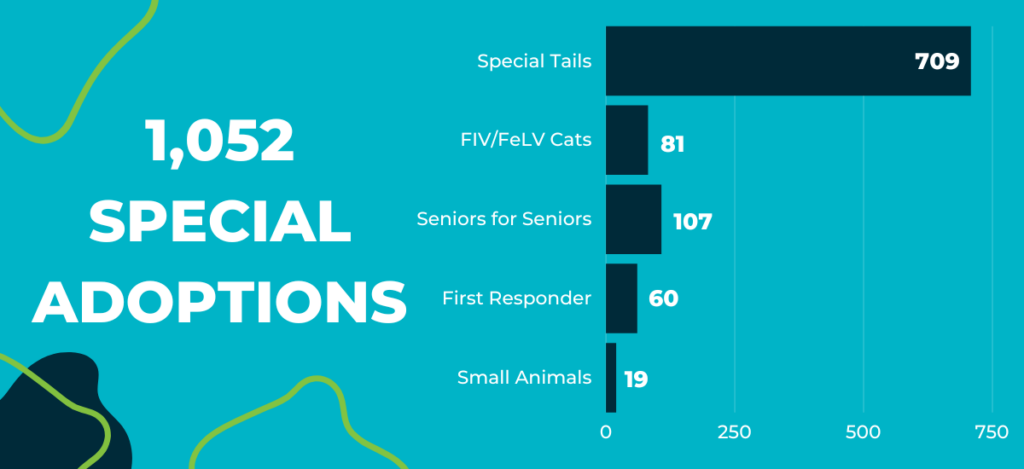
5,035 Clients of the Susan M. Markel Veterinary Hospital
We ensure that families of all means have access to treatment options they can afford for their companion animals. The Susan M. Markel Veterinary Hospital is one of our many pet-retention services that helps pets stay in their homes. Clients qualify based on household income or if they have adopted a pet from the Richmond SPCA.
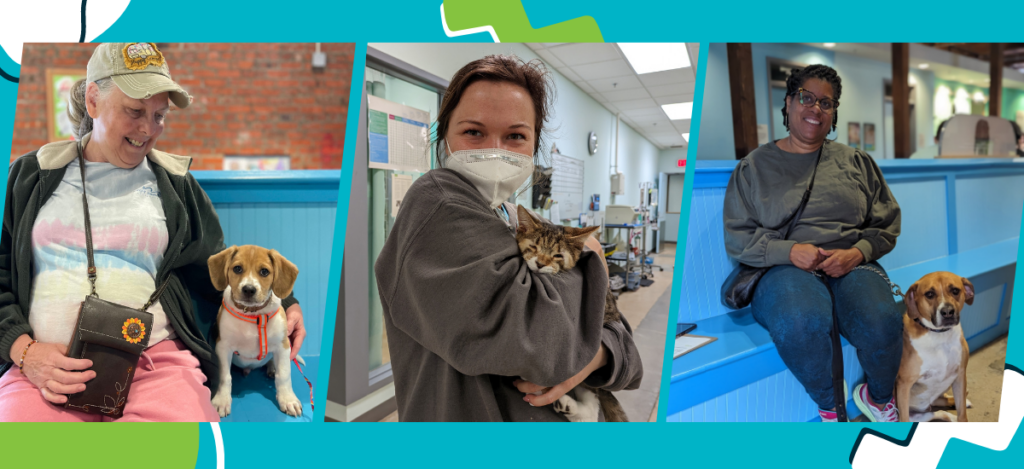
In some cases, even our already-discounted fees are more than an under-resourced pet guardian can afford. Thanks to grant funding from generous foundations, we were able to waive $94,024 in fees during the 2022 fiscal year. Fees are most often waived for non-routine care and procedures to save a pet’s life when their guardian would otherwise be unable to provide treatment.
1,000 Households Assisted by the Behavior Helpline
The Richmond SPCA introduced a Behavior Helpline in 2002 to encourage guardians to resolve their pets’ behavior challenges and keep those pets in their homes. Twenty years later, the phone and email support delivered through our helpline is still free.
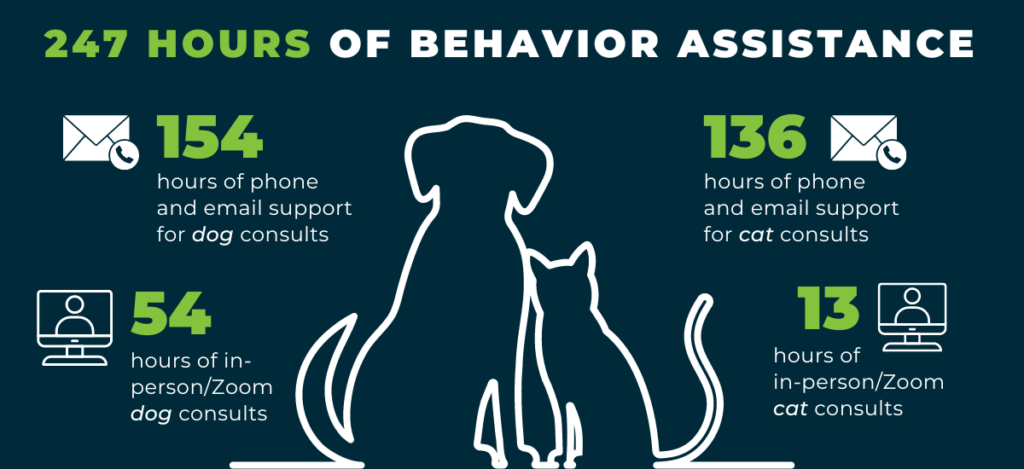
170 Pet Guardians Assisted by Project Safety Net
Pet guardians feeling the impact of job loss, housing insecurity and other stressors turn to our Project Safety Net. Our Pet Pantry distributes donations of pet food and other supplies to keep pets with their families. The temporary boarding we first offered to survivors of domestic violence through the Sheltering Animals of Abused Families (SAAF) program is now extended to assist guardians unable to care for a pet during a hospital stay or while finding pet-friendly housing. We partner with CARITAS so that pets can remain with their guardians in CARITAS emergency shelters by giving exams, vaccinations, preventative treatment for parasites and essential supplies all at no cost to the clients.
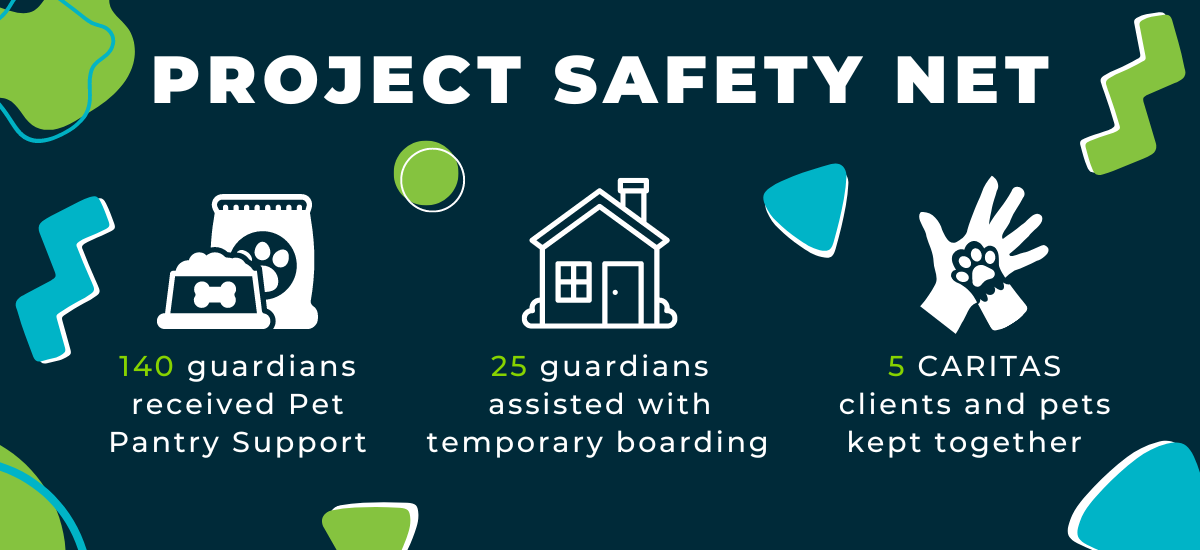
35 Agencies and 112 Community Cat Volunteers Used Smoky’s Spay & Neuter Clinic
Across the state, shelters and rescues that do not operate their own clinics have struggled to secure enough appointments to spay and neuter the animals they are placing before adoption. Recognizing the importance of pre-adoption sterilization, we sought to increase the supply of these surgeries for public and private shelters and rescue groups.
Each community cat who arrives at our clinic for surgery has gotten there thanks to a volunteer trapper. The local network of trappers, caregivers and transporters go to great lengths to improve the lives of free-roaming community cats by bringing them to us for free surgery and vaccinations.
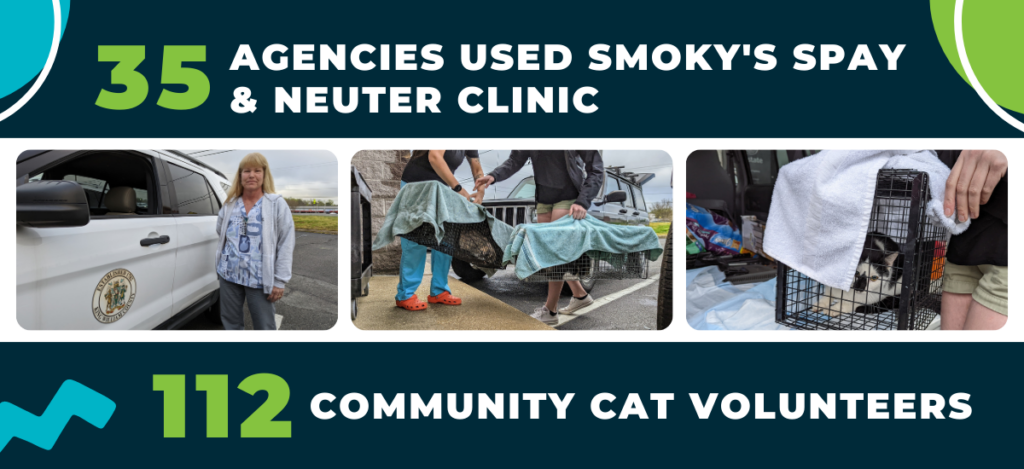
2,576 Children Attended Humane Education Programs
Our humane education programs instill compassion, kindness and empathy for both animals and humans while developing character and promoting responsible care for all creatures. Whether attending a friend’s birthday party at our humane center, meeting a dog and presenter in their own classroom, coming for a tour of our facility or attending a weeklong camp, the children who attend these programs learn while having fun.
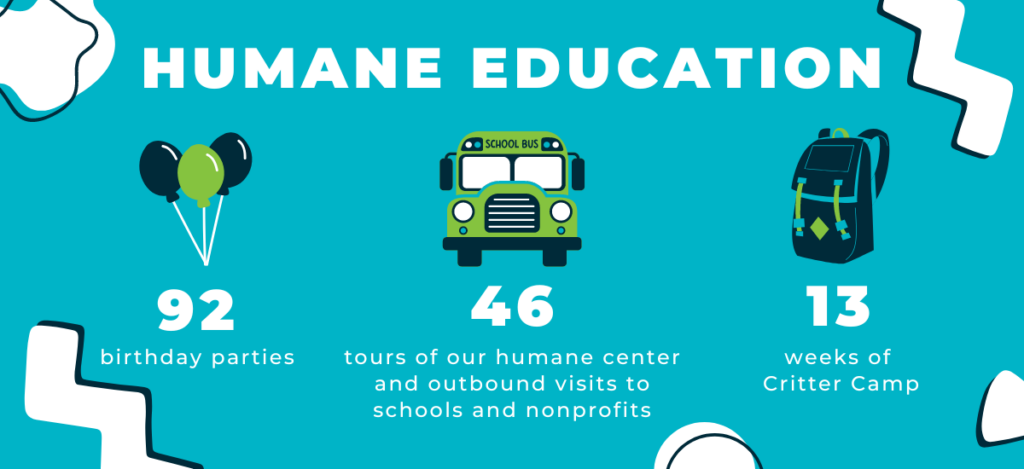
16 Future Veterinarians Completed Externships
Fourth-year veterinary students are required to complete externships spanning two to four weeks. These immersive, experiential learning opportunities help to translate academic knowledge into real-world application in a veterinary setting. Today’s students have a wide range of specialty areas from which to choose, and those completing externships at the Richmond SPCA get to be hands on across our departments. They gain experience in shelter medicine, high-volume high-quality spay neuter, and public practice.
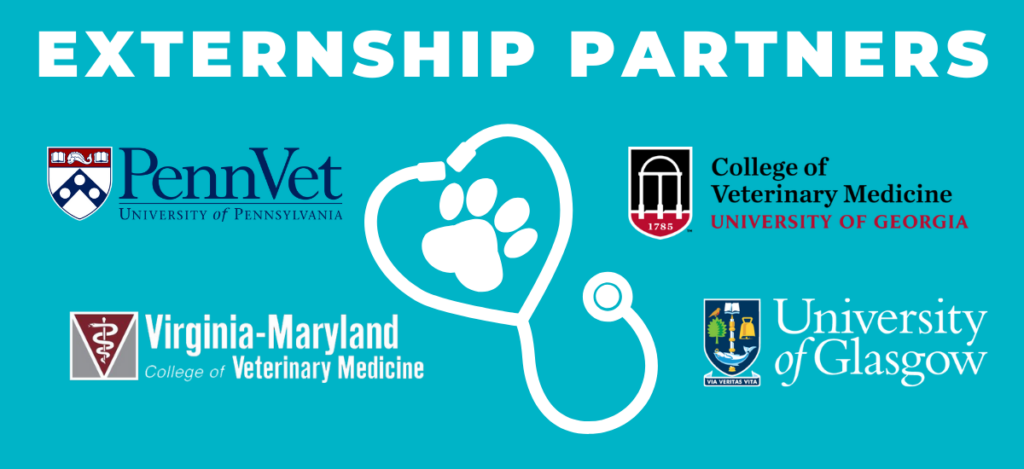
983 Students Enrolled in Training Classes
Many students first enroll in a training class to teach their dogs new skills only to discover they are gaining skills too. In the same class where dogs pick up cues for “sit” and “come,” guardians are learning better communication with their dogs and how to interpret their body language. The bonds between dog and handler that are built through training improve how we live together. While most class sessions are 7 weeks long, we also offered 13 workshops covering polite greetings, house training, dog enrichment and preparing for a new dog or puppy.
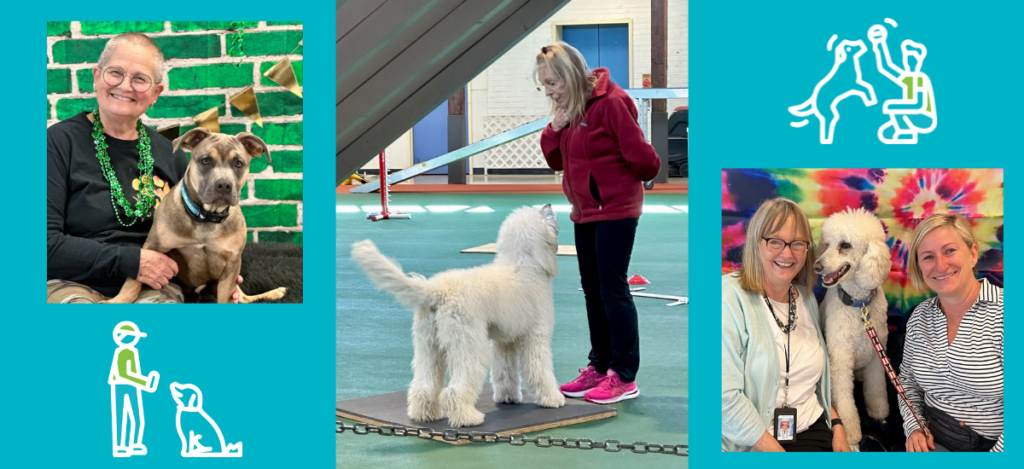
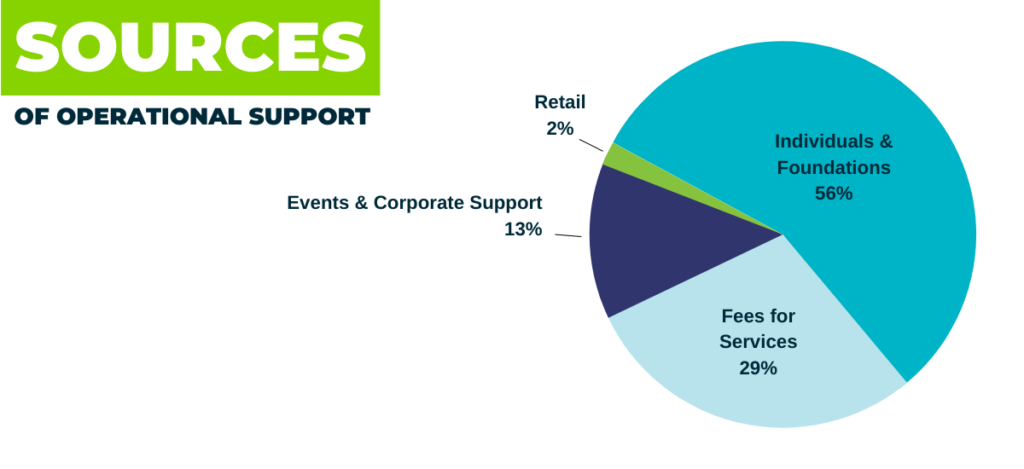
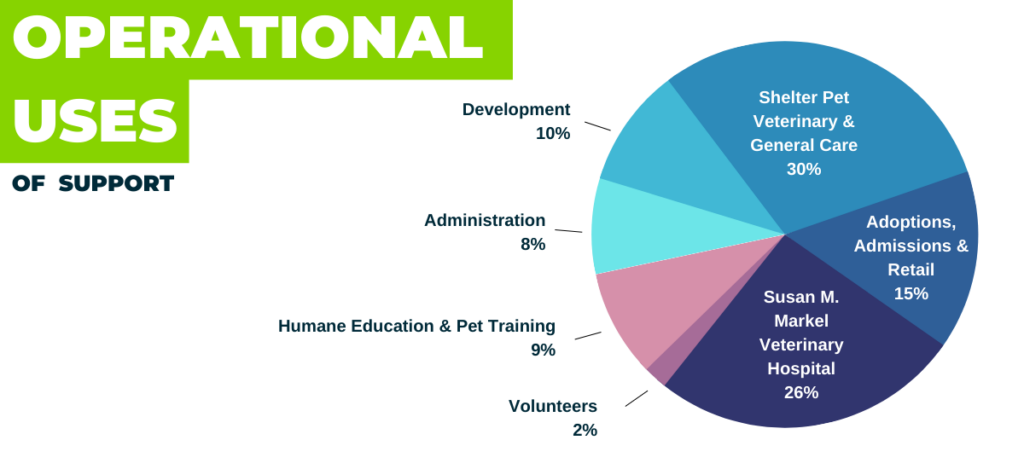
Additional Financial & Lifesaving Data
- View our Form 990 and Form 990-T from our most recently filed year.
- All Virginia releasing agencies submit annual statistics to the Virginia Department of Agriculture and Consumer Services (VDACS). View our annual public reports on their website by selecting which year you would like to review, choosing Individual Agency Report and then selecting Richmond SPCA.
- Data Saves Lives: Virginia’s animal shelter reporting requirements are a leading example of the transparency data can provide to facilitate lifesaving. The Petco Foundation has created this tool to illustrate 14 years of data from shelters in our state.
- View our FY 21 Annual Report
- View our FY 20 Annual Report
- View our FY 19 Annual Report
